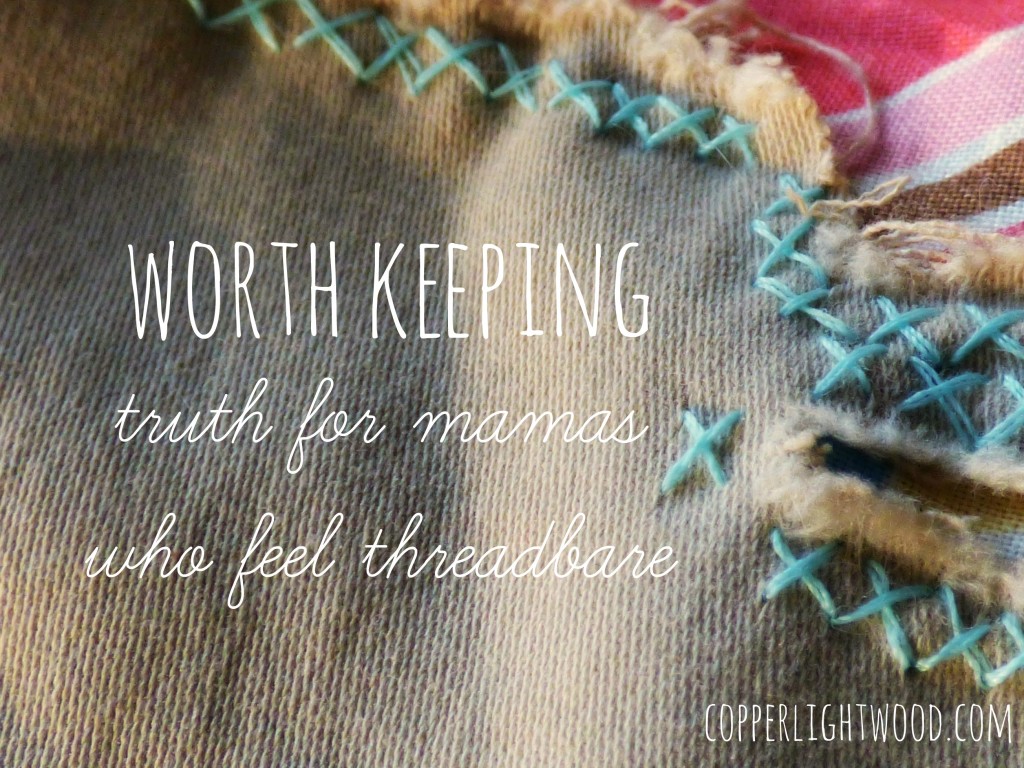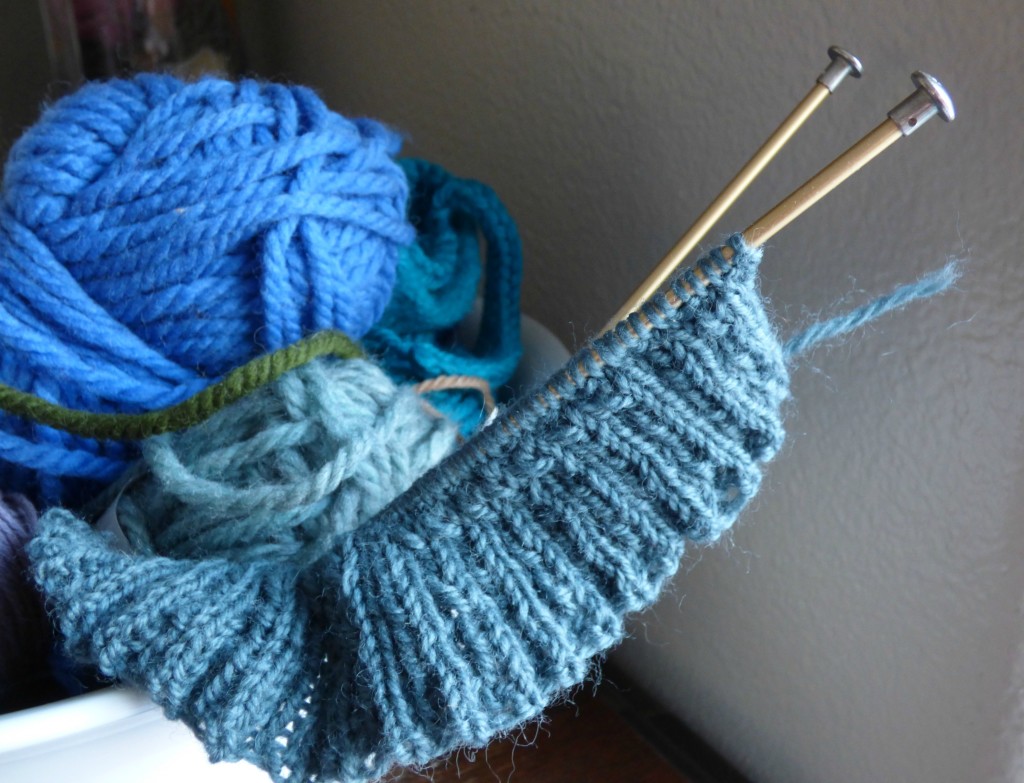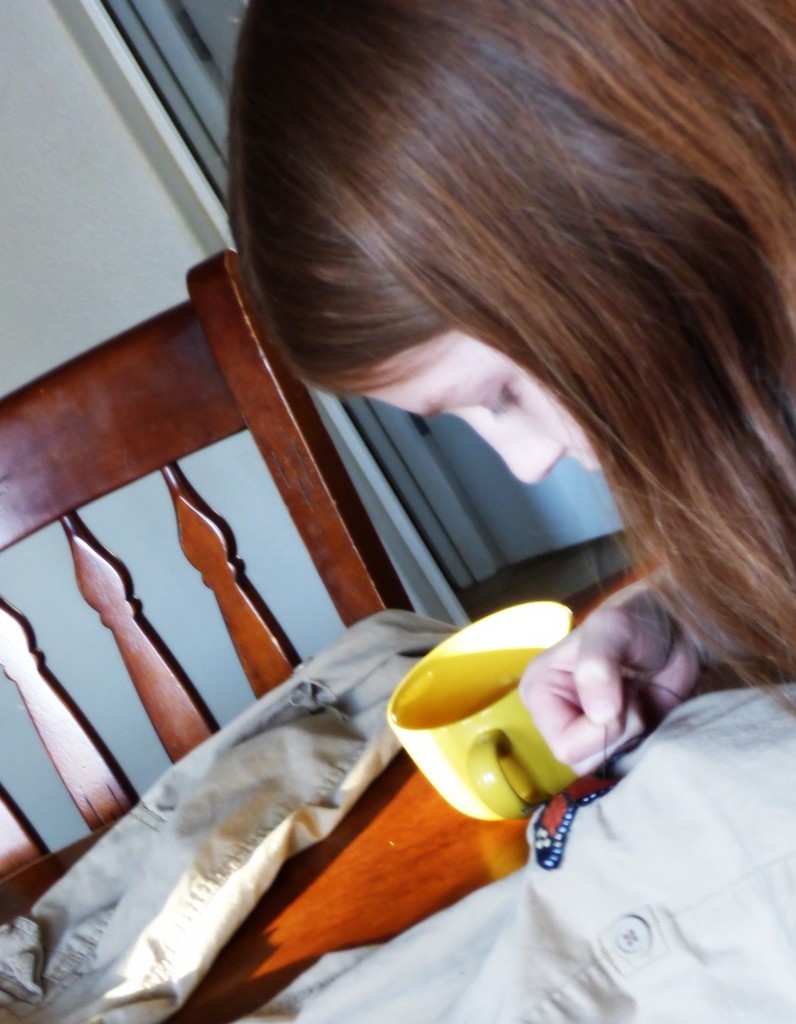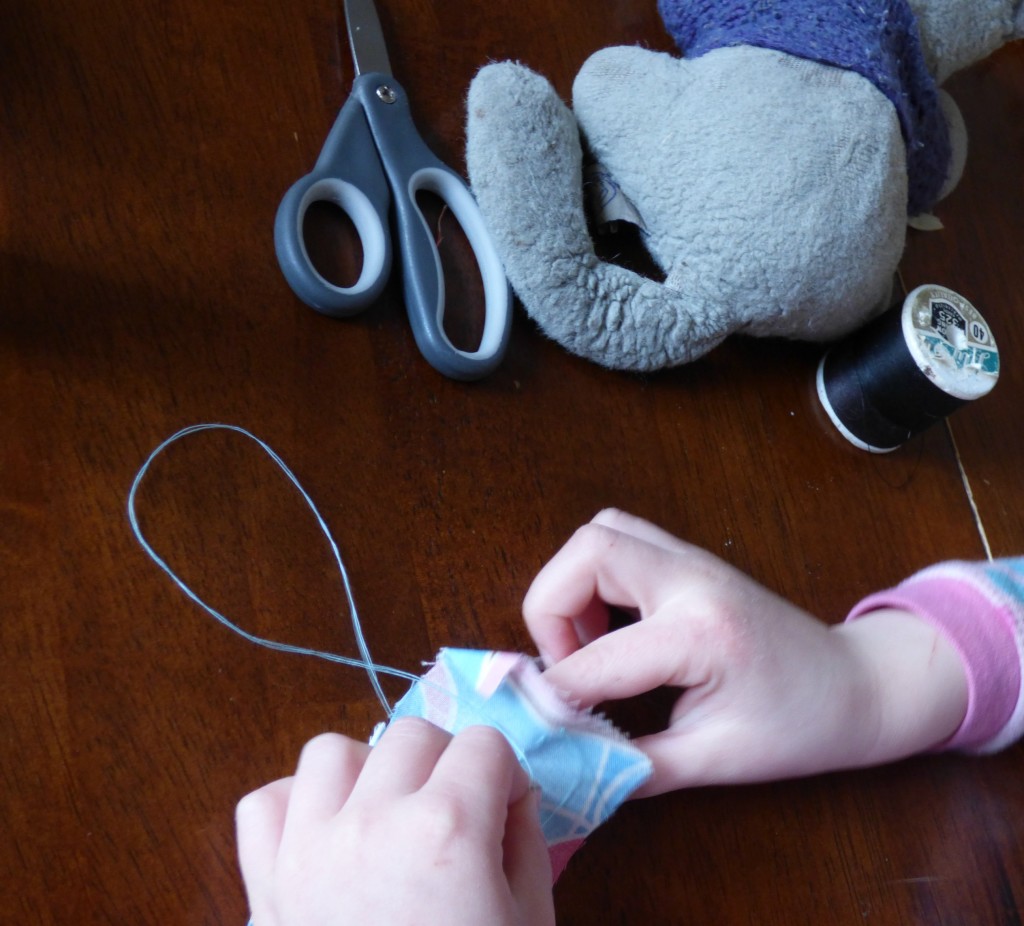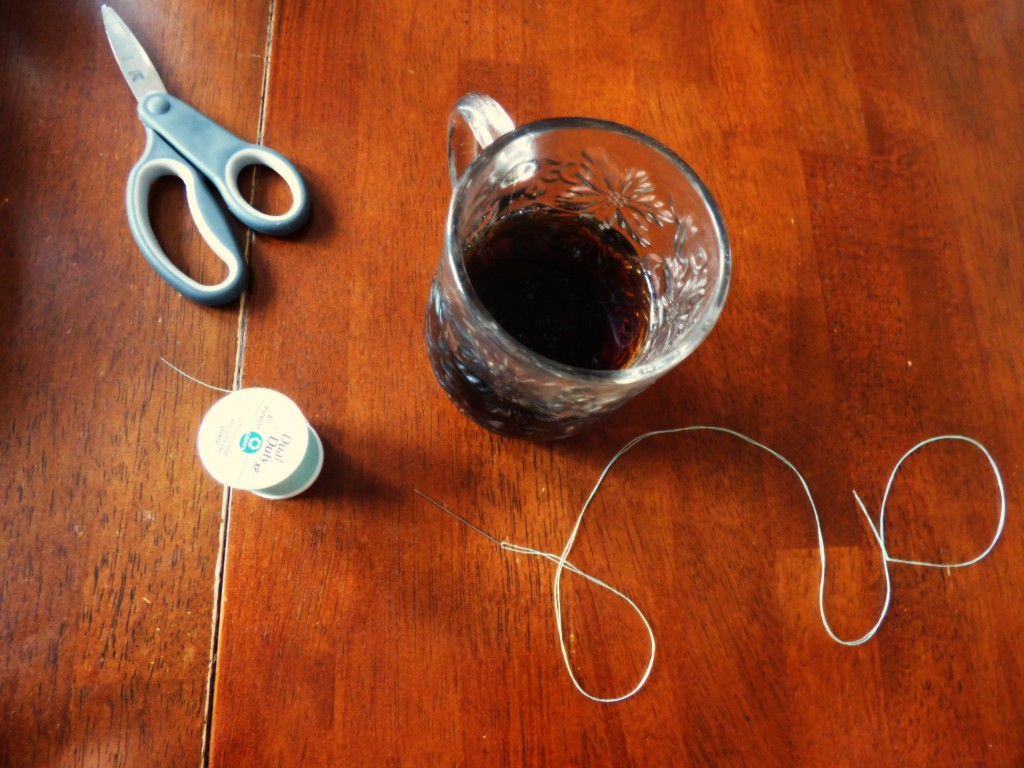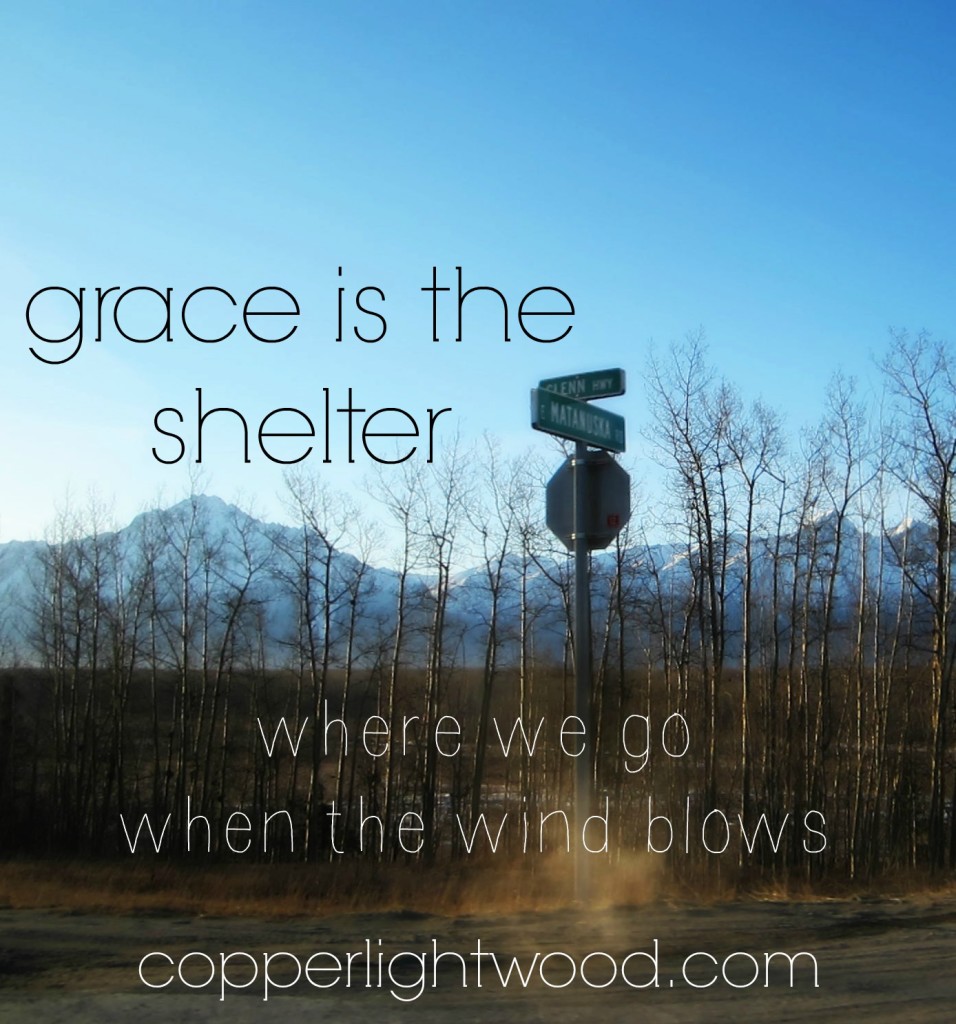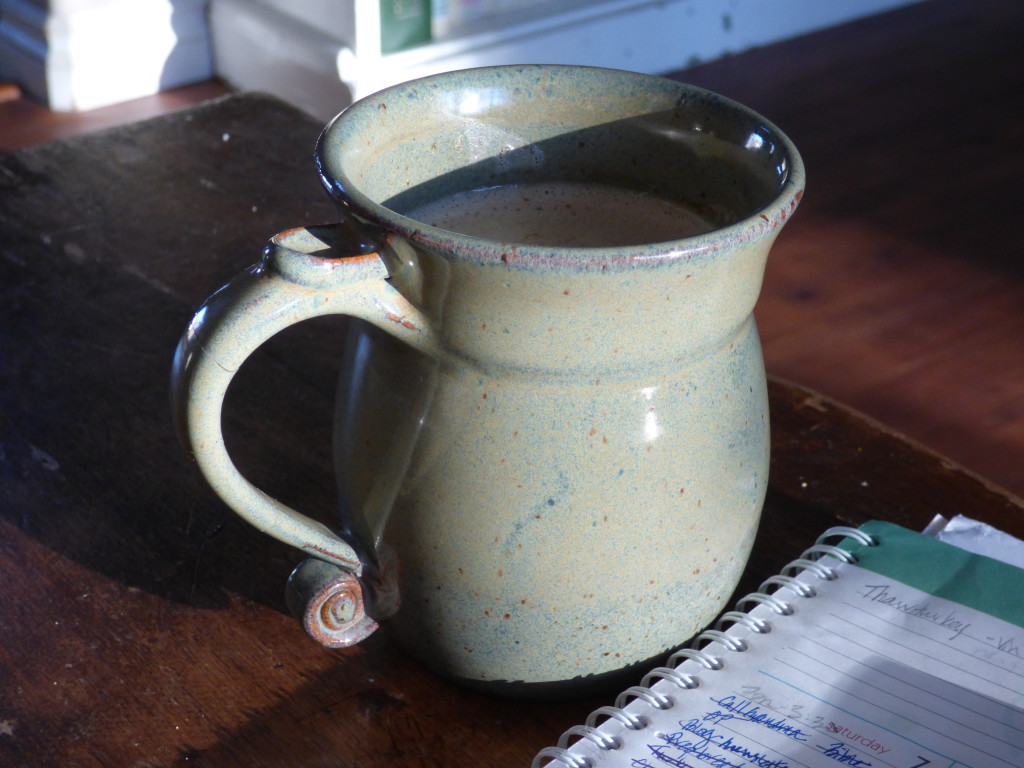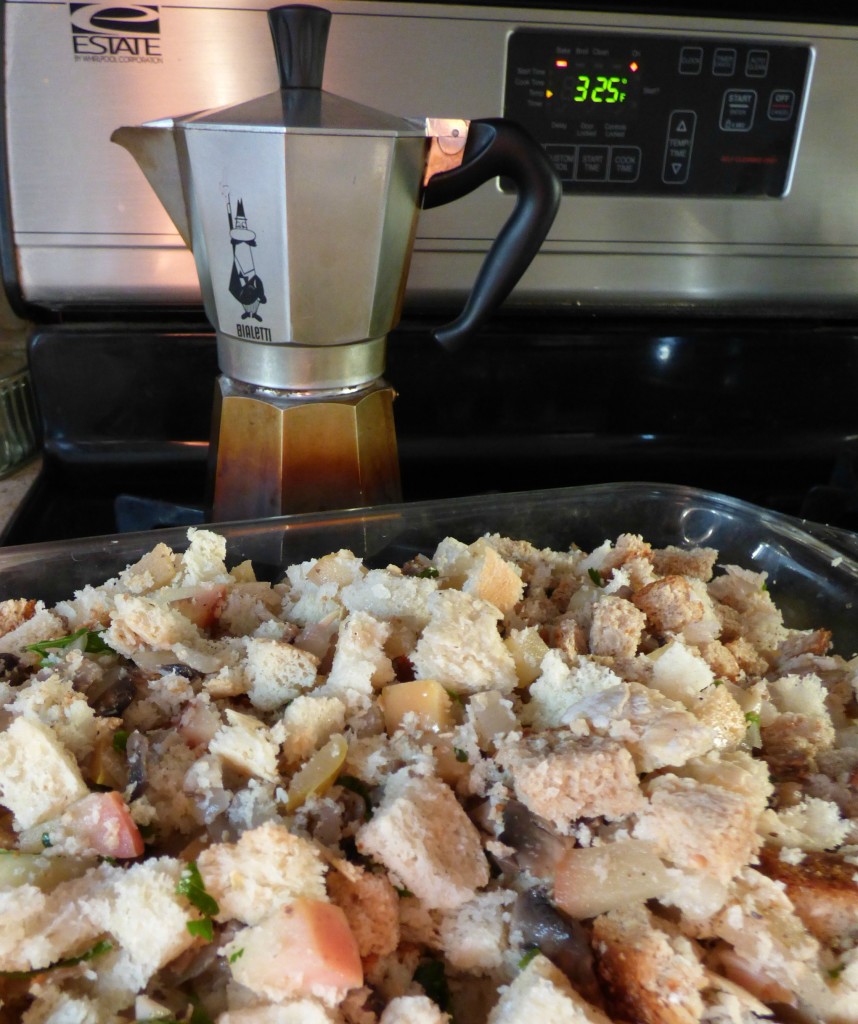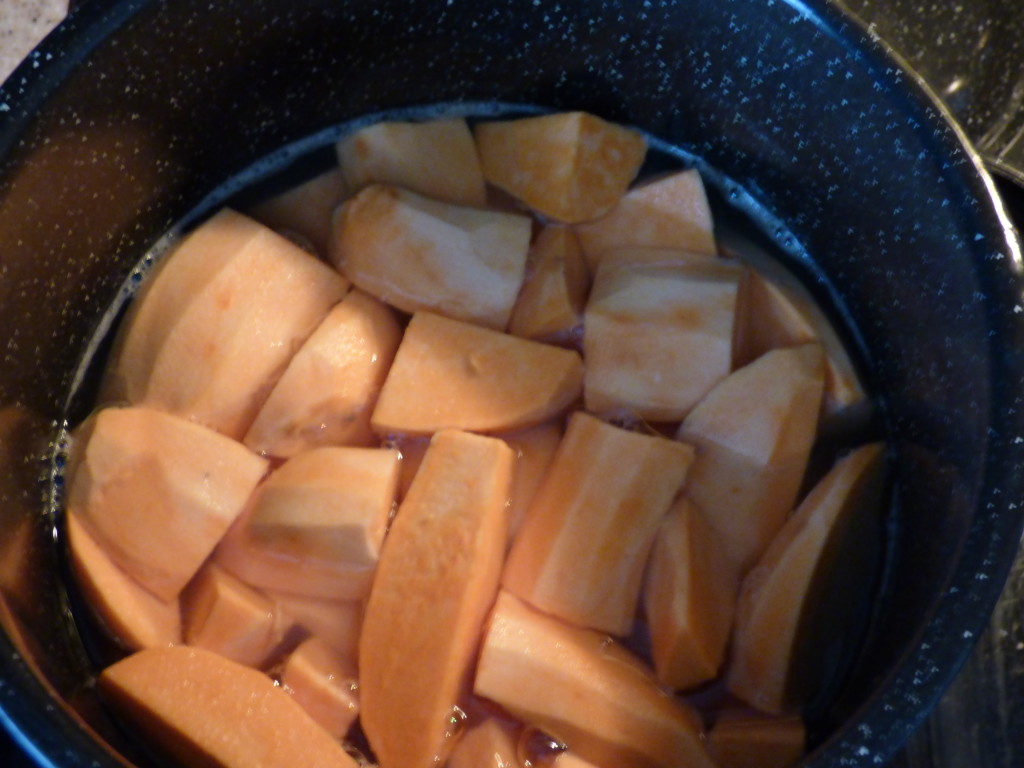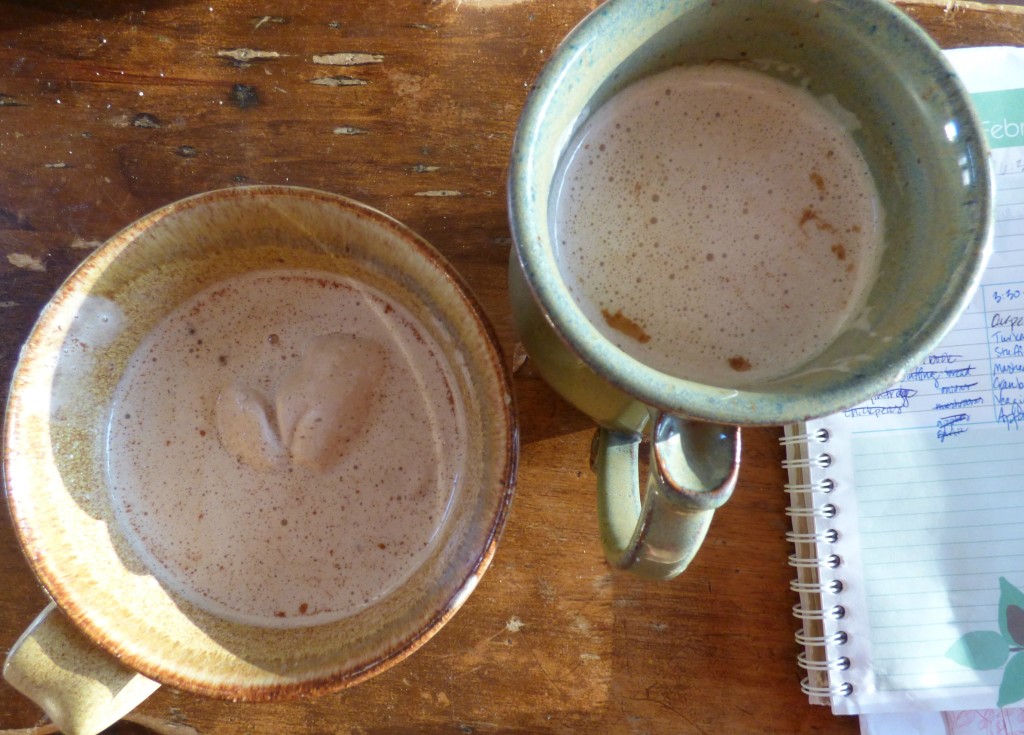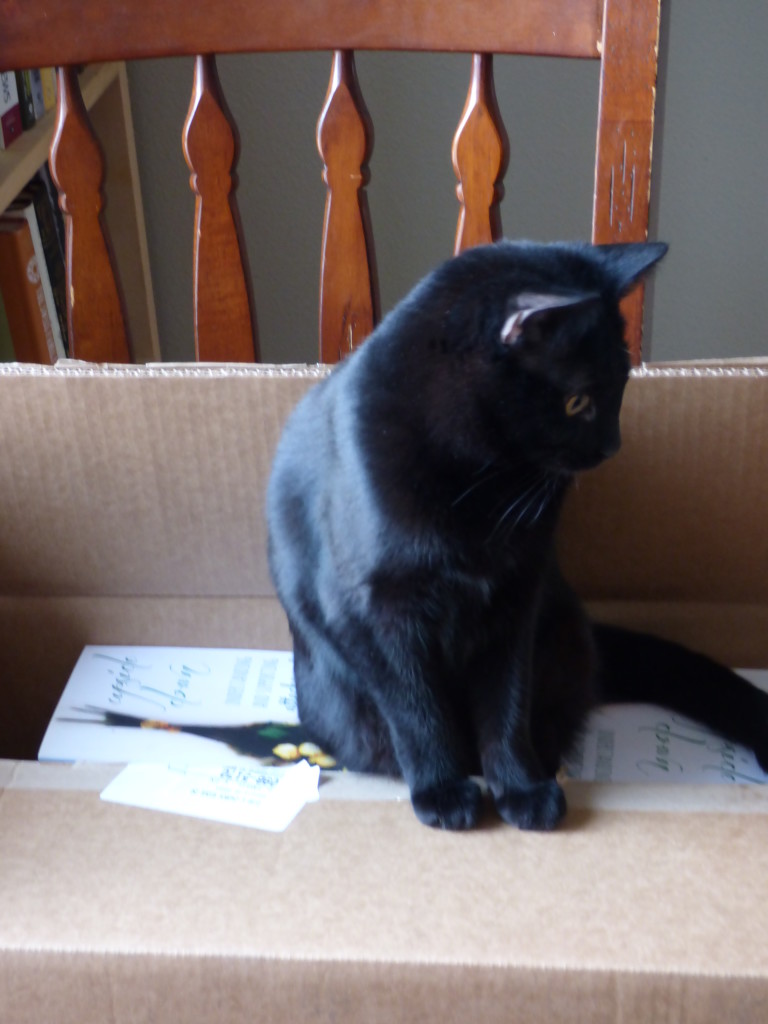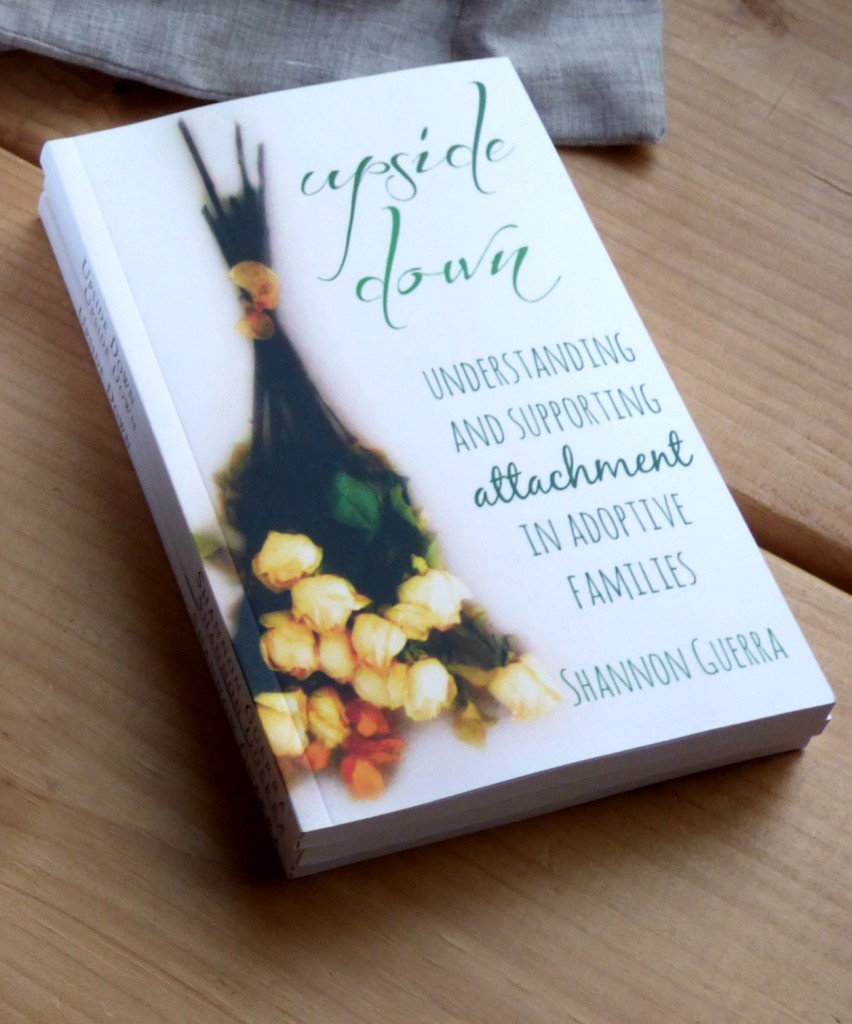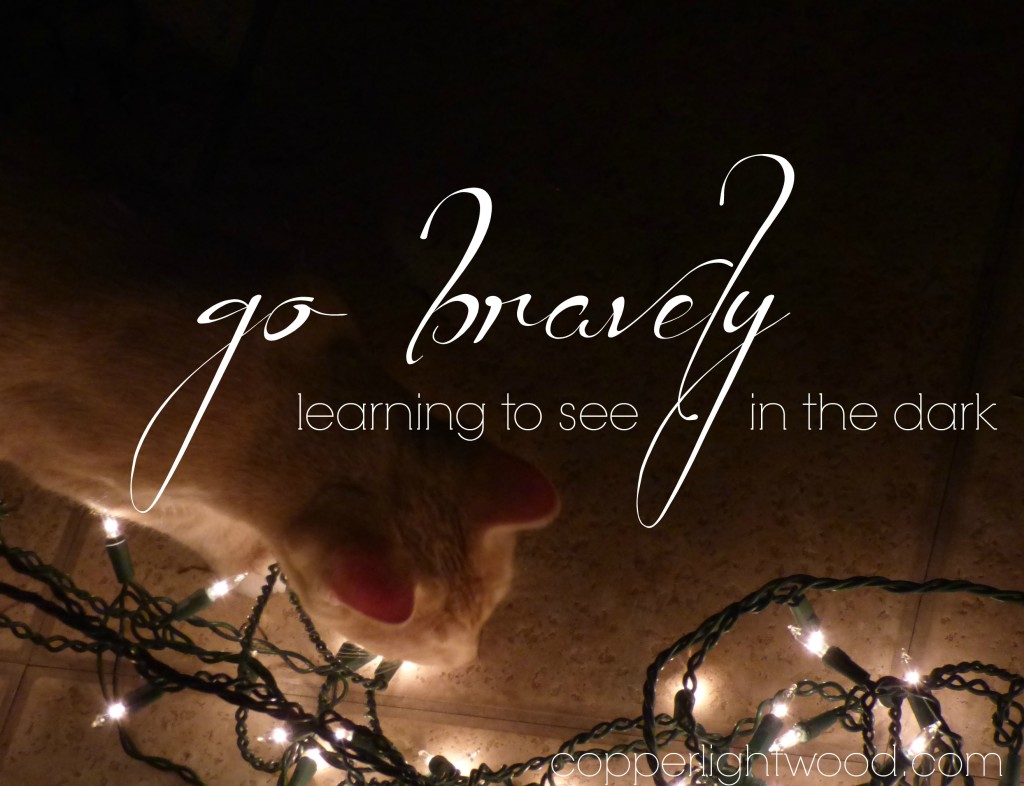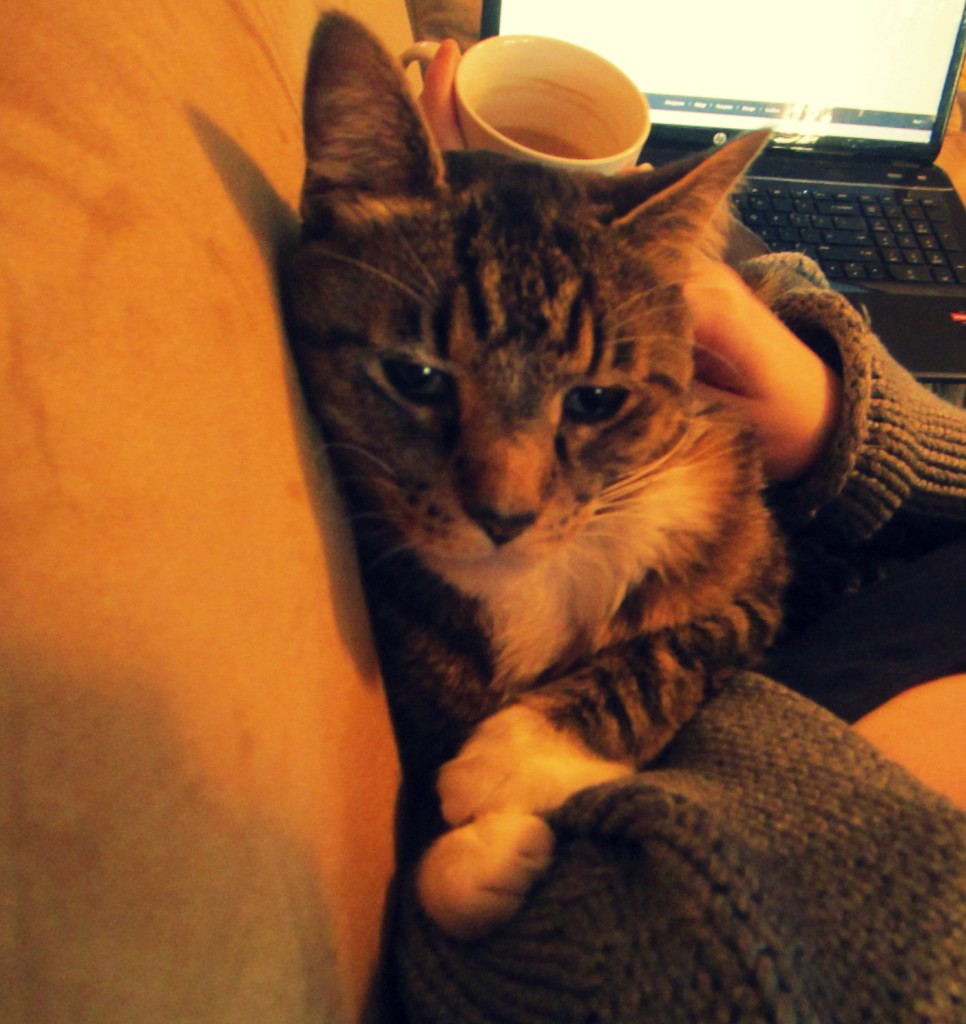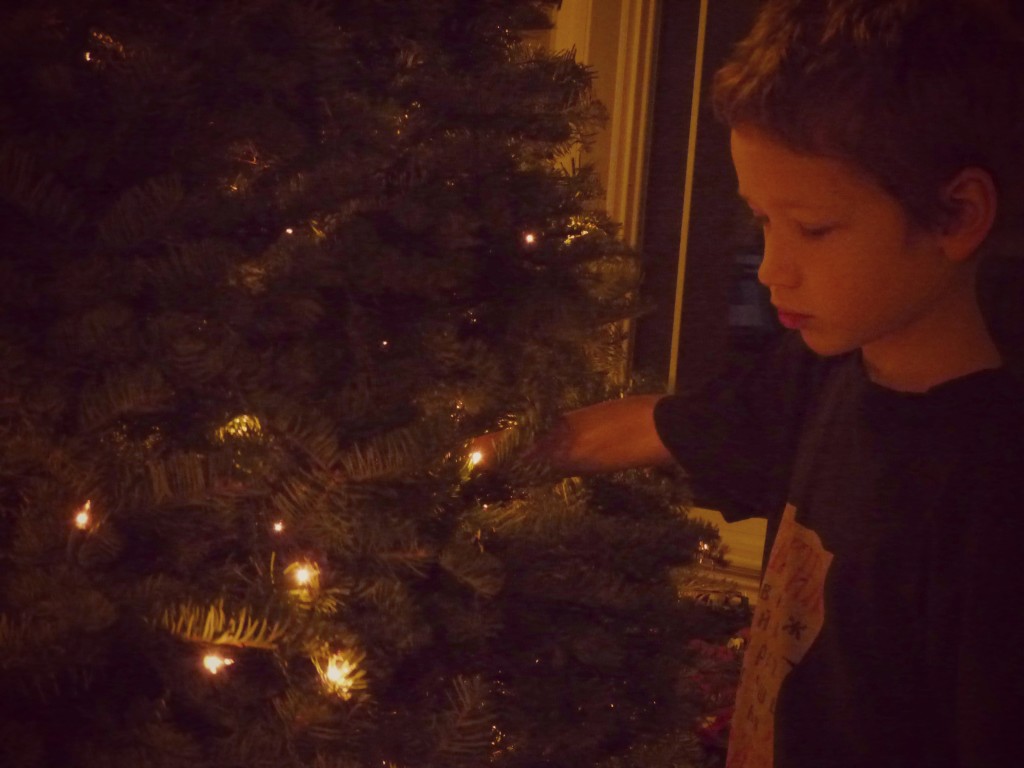I’m not sure if this means that nesting has started or not, but I started making an ambitious new baby sweater – skinny needles, thin wool, and a pattern with a mock-cable stitch that I’ve wanted to try since at least three babies ago.
I showed it to Vin. “It looks…girlish,” he said.
“That’s because the photo shows it in pink, on a girl. I’m making it in blue, see?” I hold up all the work I have to show for myself – ¾ inches of knitted fabric on a long metal needle with steel blue wool attached to it. A masculine, virile color, even for someone who spits up and wears onesies.
“No, it’s the style.”
“It’s a cardigan.”
“Well, cardigans are girlish.”
“No, they’re not. Boys can wear cardigans.” But I pause to reconsider, remembering a recent court hearing we went to for our friends’ adoption, where at least a dozen Alaskan boys in attendance wore their favorite flannels.
“Well, little boys can definitely wear cardigans,” I tell him. “Little boys in Ireland and England probably wear cardigans all the time.”
He shrugs and starts to walk upstairs. But, oh no, that’s not the end of this argument.
I yell up after him. “Hey! Churchill wore cardigans!”
And that, my friends, is the end of the argument.
We organized the girls’ closet that same weekend. This was also probably not nesting, just us noticing that it’s time for the clothes to shift down to the next youngest sibling regardless of how much the nine-year-old loves her size 4T hoodie. We managed to smuggle out some of the rattiest clothing ever known to Oliver Twist’s old orphanage.
Paint stains. Food stains. Ripped knees, torn lace, shredded cuffs, and elastic stretched beyond recognition – items of clothing so well-loved that no amount of reason or dignity could convince a child that they were hopelessly unsalvageable and that so help me if you somehow slip past inspection and manage to wear these in public again I might be tempted to throw myself in front of a fast-moving grocery cart in the produce aisle.
Most of it went in the burn barrel, but some of it was hoarded with a stash of fabric scraps to wait for the day when I am a perfectly sanctified crafty mama who can turn her children’s favorite clothing into a quilt. Or, maybe a doll’s blanket. Or…let’s be realistic. A pincushion.
Because I get threadbare, too. Worn and unraveled, some days I find myself in my favorite flannel – the one with the missing button and torn pocket – and the piano teacher comes over and sees me in it and, well, what the heck. Who cares.
Or, other days – and I can neither confirm nor deny that it was today – the internet repair guy comes 40 minutes early, and contrary to the assurances on the phone that they wouldn’t even need to enter the house, they not only do have to enter the house, but they also have to rearrange your furniture, knock over a vase, and access the crawlspace while six kids are everywhere and two of them can’t do their school assignments because, wouldn’t you know, the internet is down again.
We are sweeping up shards of the morning before the breakfast dishes are even cleaned up, and No, you can’t help me, there’s glass and you might hurt yourself and my temper is on the verge of calling a taxi. It feels like an already shattered day is hopelessly unsalvageable and my edges are all ragged, sharp, and bleeding. Some days we are stretched beyond recognition and motherhood feels hopelessly unsalvageable.
But, oh no, that’s not the end of the argument.
The truth is, friend, that these days of fraying and tear-staining are evidence of a mama who is so well-loved that no amount of reason or dignity could convince a child that they were hopelessly unsalvageable. We are worn to softness from daily use by children who run to us constantly for comfort, like that favorite blanket, never outgrown.
And yes, the over-use probably indicates that we need to do some extra hemming to put some hard edges into our days – a firm break here, a no-holds-barred nap there, and a bedtime that takes no prisoners – and doing so puts less wear and tear on everyone.
We are easier on our kids when we are easier on ourselves…and we’re in better shape than we think. You, and me, and these days, are worth keeping.
P.S. But that sweater pattern? Iree checked it out and said, “Looks kinda…girlish.” (sigh)
____________
*This is an excerpt from Steadfast: Prayerful Motherhood in the Midst of the Overwhelm (book #4 in Work That God Sees). You can find it here.

